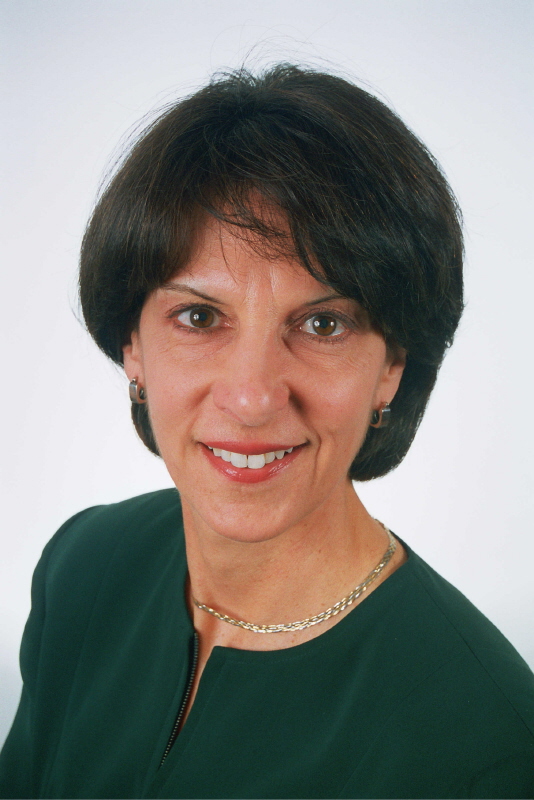Interview with a Pioneering Scientist: Dr. Sarina Grosswald

Dr. Grosswald has a doctorate in education, is an expert in cognitive learning, and president of SJ Grosswald and Associates, a consulting firm in medical education in Arlington, Virginia. She is a leading authority on the use of the TM program for relieving symptoms associated with stress and trauma, ADHD, bipolar disorder, and Post Traumatic Stress Disorder in veterans. Dr. Grosswald has published and lectured widely in the fields of medicine and education. In addition to scholarly journals, she is coauthor of The Resilient Warrior. Her work has been featured in US News and World Report, Business Week, Newsweek, International Herald Tribune, Barron’s, ABC news, and PBS.
Janet Hoffman: As a woman with a background in science and education, what do you think are the most valuable benefits of the tm program for girl students?
Sarina Grosswald: All of the benefits of TM can be talked about in terms of the science that supports it. To me, one of the most interesting benefits is in the area of brain development. TM creates what we call “whole brain coherence.” In simple terms it means the whole brain is actively firing together, not just one part of the brain or another. In order to get good at something we generally have to do it over and over. When practicing music for example, one part of the brain is activated – when solving a science problem it’s another part. Doing each task many times strengthens the brain connections related to the task – more brain cells are developed and the speed of processing increases.
During TM the whole brain interacts with itself, strengthening the pathways and speed of processing. So just by settling down and doing “nothing,” the whole brain develops. It’s like being able to go to the gym, sit on the couch with your eyes closed, and come out as if you had a vigorous workout – the muscles are stronger and your endurance is better. Except this is for the brain.
What I think is most valuable for girls, is that as a result of this whole brain development, all of our thinking expands. We’re not trying to solve a problem by just using the abstract part of the brain or the concrete part, but rather the whole brain gets in the act. The result is that limitations that we often create for ourselves “I can’t do math, I’m not good at fixing things,” whatever we create in our minds as obstacles, just tend to melt away spontaneously.
Research shows that girls tend to speak less in class than boys, they often don’t exert themselves, or don’t have the self-confidence to reach their full potential. Because of the expansive thinking that develops with TM, girls can naturally develop their potential. It doesn’t take effort. The mental obstacles just don’t come up.
JH: You have been deeply engaged in bringing the TM program to women veterans. Can you describe your personal reaction to their emotional, mental and physical trauma resulting from their military service and how you saw the TM technique relieve them of these disabling problems?
SG: There is nothing more rewarding than giving someone a tool to take them out of suffering and pain. Women in the military work hard to perform equally to men in every way. They sublimate their femininity. Their transition back into civilian life can be very difficult, especially if they have a spouse or children. They are expected to return to a role that they have had to put aside and have grown unaccustomed to. Further, when they suffer from the traumas of military service, they often do not talk about it and do not seek help. The data show that men are more likely than women to talk about their military experience. They often seek out other veterans, and take comfort in their company. Women are much less likely to do that. So they may be completely out of touch with their own suffering, or just try to cope silently. When they learn TM, it’s like a weight has been lifted from their shoulders. They find themselves again; they regain their more nurturing, feminine qualities, which they may not have even realized they’ve lost. It is empowering.
JH: Business and professional women are not subjected to the same stressors as school students or women in the armed forces, but they have their own set of pressures that can be deeply stressful. Can you talk about the TM program’s benefits in that regard?
SG: Everyone’s tolerance for stress is individual. If someone finds something stressful to them, then it is, regardless of whether it’s from war or from the pressures of work or responsibilities or life. When we reduce stress it makes room for all the good things in life to expand. Even if nothing outwardly changes, our appreciation of life increases. Don’t you feel happier, livelier, more easygoing on a sunny day compared to a cloudy day? Life is the same, but somehow it seems better when the sun is out. The same is the case when we’re relaxed and rested. We can’t control the weather, but through regular practice of TM, we can make every day feel like a sunny day.
About the Author
Janet Hoffman is the executive director of TM for Women Professionals, a division of TM for Women in the USA
More Posts by Janet
- Author Ann Purcell Discusses Silence
- Five Fundamentals of Progress: A Scientific Path to Self-Improvement
- Advice You Can Rely On: How to Leverage Your Body’s Innate Healing Ability
- Saving the Ocean from Deadly Noise Pollution: An Interview with Kathy Matara PhD
- The Omnipresent Nature of Consciousness





